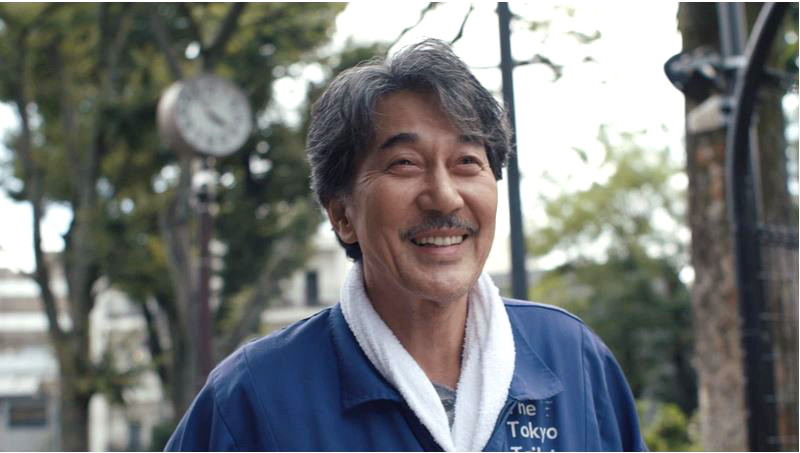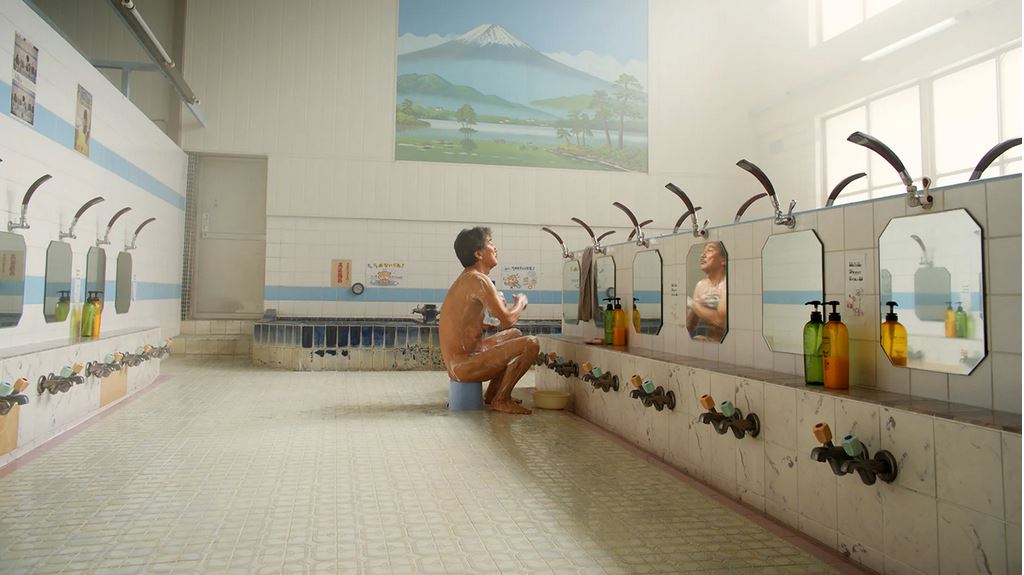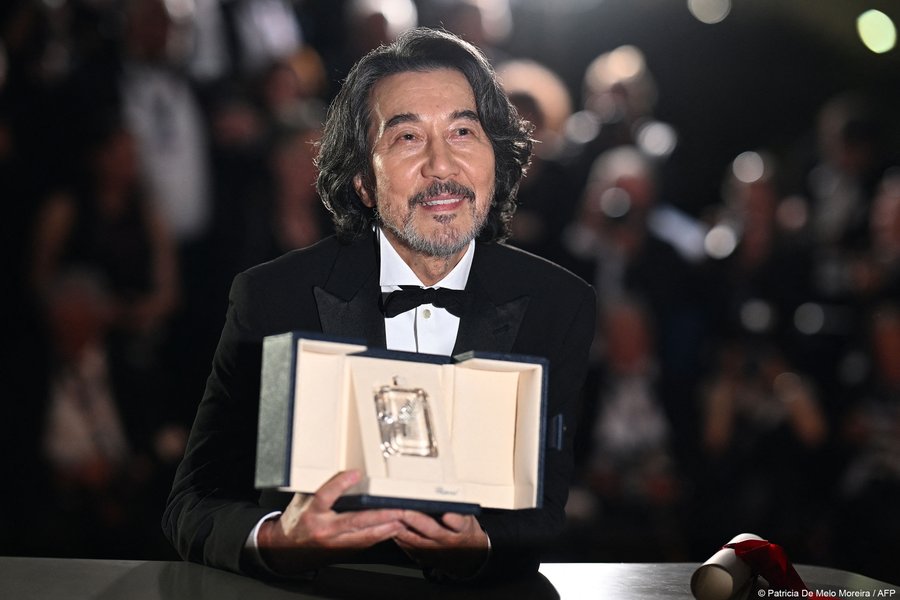
Soon after the pandemic, acclaimed German filmmaker Wim Wenders was invited to witness Tokyo’s award-winning urban renewal project, The Tokyo Toilet, in which renowned designers reimagined the typical urban public restroom. Wenders, who is also a celebrated documentarian (Buena Vista Social Club, Pina, and the new Anselm), was expected to craft short films about each unique lavatory. Instead, he and co-screenwriter Takuma Takasak delivered an instant classic—one that dares to find quiet poetry in a most unexpected corner, the public toilets of Tokyo. Perfect Days (presented by NEON) insinuates its message and story with wry humor that builds to an emotional climax of darkness and light. It is that rare film where story structure melds with seamless integration and brings our own lives into meditative focus.
At first, Perfect Days follows its title (a borrowing from Lou Reed’s seminal 1972 hymnal, “A Perfect Day,” heard in the movie) rather literally. We watch Hirayama, played by Koji Yakusho (most known for Shall We Dance, Memoirs of a Geisha, and, a favorite, as the man in the white suit in Tampopo), clean toilets as an employee of The Tokyo Toilet. We are lulled into rhythm, minutia, and repetitions of his every day, captured by Franz Lustig’s precise, perfectly framed cinematography. Through Yakusho’s primarily wordless performance, Hirayama executes his mundane daily tasks gracefully and purposefully. We witness his love of reading, classic American rock, which he has collected in cassette tapes, and especially trees, which he photographs (and catalogs) almost daily with his analog film camera. Hirayama’s life is a sincere meditative journey of finding joy in little things—giving form to the untranslatable Japanese word, ikigai, which speaks to having a purpose in life.

Perfect Days, an artful melding of images, characters, and songs, visits another untranslatable Japanese word: komorebi. Although never spoken in the film (it appears in the credits), komorebi, the magical effect of dappled sunlight seen through the trees and leaves, is, as mentioned, captured by Hirayama through daily observation and photography. These images also enter Hirayama’s dreams each night, rendered as short, beautiful movies-within-a-movie installations. The interludes begin as a simple visual punctuation at the end of the day, but as with much of this film, they accrue impact and, as a motif, become characters in their own right.

But the film isn’t merely a meditative ode to routine. Wenders introduces characters who challenge, disturb, and expand Hirayama’s order as days accumulate. We meet Takashi (Tokio Emoto), the over-exuberant, romantically distracted Gen Z colleague who charmingly crashes all of Hirayama’s boundaries. Niko (Arisa Nakano), Takashi’s unrequited love interest, discovers cassettes in Hirayama’s van and, via Redondo Beach by Patti Smith, pierces Hirayama’s silent shell. There’s the homeless “tree man” (famed dancer Min Tanaka) who embodies Hirayama’s obsession with nature but reminds him of the perils of solitude. To avoid further spoilers, this list of new characters will end here. But Wenders’ Perfect Days, as with any day, gets more populated and grows darker and more mysterious over time.
Without preaching, Wenders weaves his auteur concerns: urban nature disconnect (you will never look at Tokyo’s iconic tower, Skytree, the same again), digital and analog tensions, societal status, pride in work, and the importance of contemplation through nature and literature. The depth of Koji Yakusho’s nuanced, career-defining performance enables the film’s operation on two levels, in which the director constructs the story (seen) with its backstory (learned but not seen), creating a satisfying dramatic narrative.
As the days and nights unfold, life’s quiet and balanced hum, like the shadows created by the trees, grows around us. Perfect Days asks its audience to surrender to a gentler rhythm and meditate on one specific life dwelling in the heart of a vast city—a man of full measure and pain. Perfect Days is a film of hushed beauty that echoes with wonder and joy.
Stephan Koplowitz is a director/choreographer and the author of On Site-Methods for Site-Specific Performance Creation by day. By night, he’s an avid cinephile.
